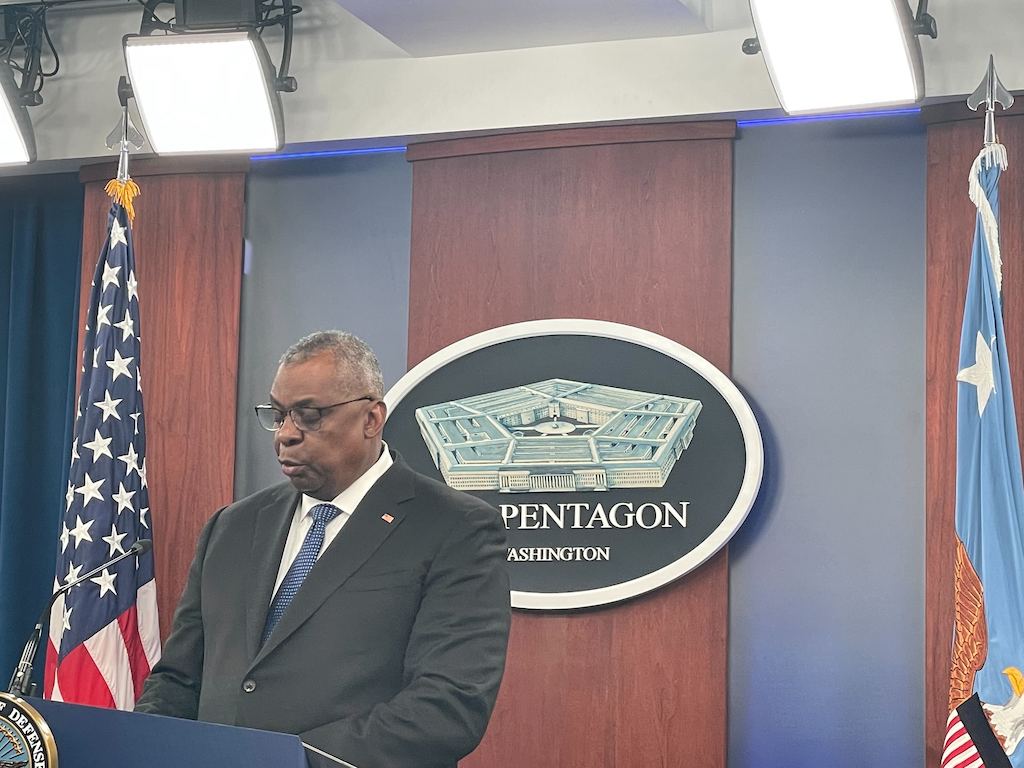ARLINGTON, Va. – Despite Russia’s invasion of Ukraine, a Department of Defense report released Thursday calls China the greatest threat to the United States.
The unclassified 2022 National Defense Strategy, a report that lays the groundwork for future military planning, and calls the People’s Republic of China “our most consequential strategic competitor for the coming decades.”
It highlights China’s “increasingly aggressive endeavor to refashion the Indo-Pacific region,” and “authoritarian preferences,” a reference to China’s growing threat to militarily retake Taiwan.
In a Pentagon press conference, Secretary of Defense Lloyd Austin told the media that China “is the only competitor out there with both the intent to reshape the international order and increasingly the power to do so.”
The report calls China a “pacing challenge” and notes that the country’s increasingly close relationship with Russia is a cause for growing concern.
Similarly, the report calls Russia’s war in Ukraine an “acute threat,” to be viewed as one problem amidst other concerns posed by North Korea, Iran, extremist organizations and – increasingly – climate change.
“Unlike China,” Austin said, “Russia can’t systematically challenge the United States over the long term. But Russian aggression does pose an immediate and sharp threat to our interests and values.”
Since the last report was released in 2018, the United States ended a two-decade-long war in Afghanistan and pulled nearly all troops from Iraq and Syria. The newest report represents a shift in policy from a focus on counterterrorism in the Middle East to renewed attention to near-peer competitors with nuclear weapons.
The new report emphasizes deterrence and collaboration with allies through three prongs, the first of which is “integrated deterrence,” a vague phrase calling for unified efforts among factions of the military, government and U.S. allies to prevent conflict.
“Integrated deterrence means using every tool at the Department’s disposal, in close collaboration with our counterparts across the U.S. Government and with Allies and partners, to ensure that potential foes understand the folly of aggression,” the report reads.
The second prong is campaigning, which the report describes as “the deliberate effort to synchronize the Department’s activities and investments to aggregate focus and resources.” Campaigning seeks to address the most serious threat to the U.S. and military might in the future.
The final prong, “building enduring advantages,” refers to the Pentagon’s force readiness and infrastructure, particularly “undertaking reforms to accelerate force development, getting the technology we need more quickly.”

